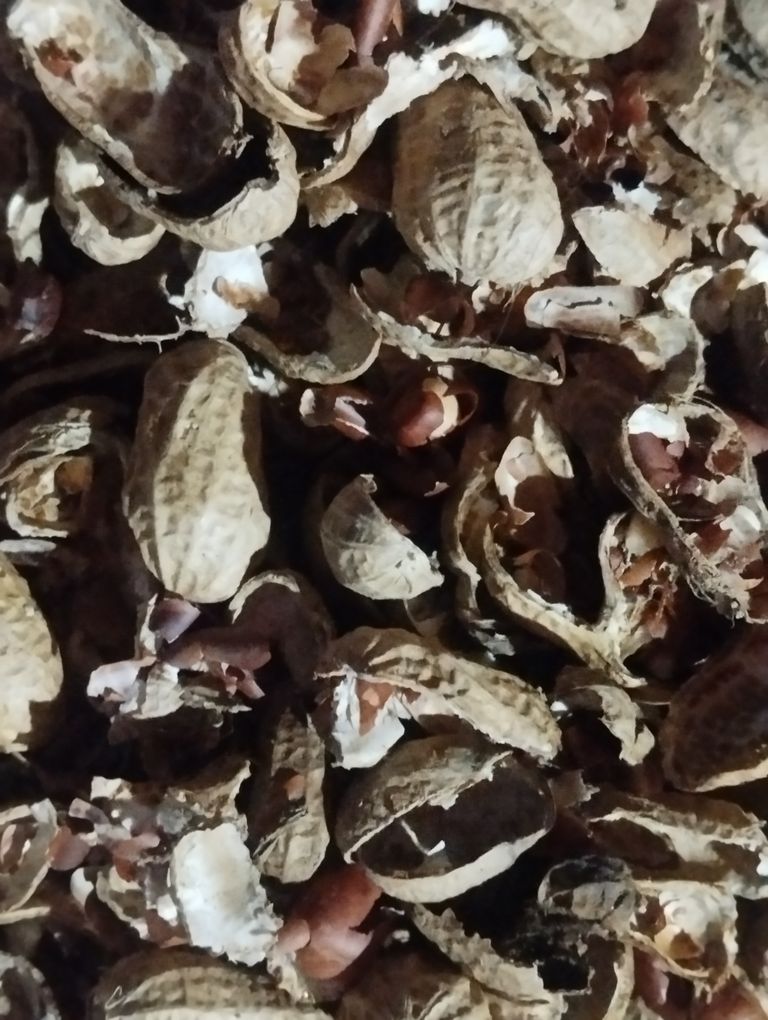
A Comprehensive Guide to Peanut Farming.
Peanut farming, also known as groundnut farming, is a lucrative agricultural activity that plays a vital role in meeting the demand for edible oil, protein, and other by-products. Peanuts are cultivated in tropical and subtropical regions and are valued for their versatility in various industries, including food, cosmetics, and biodiesel. This blog explores the key aspects of peanut farming, from planting to harvesting.
- Understanding Peanuts
Peanuts, scientifically known as Arachis hypogaea, are legumes, not true nuts. They are rich in protein, healthy fats, and essential nutrients, making them a staple in many diets. The two main types of peanuts grown globally are:
Runner Peanuts: Primarily used for peanut butter.
Virginia Peanuts: Preferred for roasting due to their large size.
- Ideal Conditions for Peanut Farming
Peanuts thrive in specific environmental conditions:
Climate: Warm weather with temperatures between 20°C to 30°C is ideal.
Soil: Well-drained sandy loam soil with a pH of 6.0–6.5 is best suited.
Rainfall: Moderate rainfall (500–1000 mm annually) is essential for healthy growth.
- Land Preparation
Clear the field of weeds, stones, and debris.
Plow the soil to a depth of 15–20 cm for aeration.
Apply organic manure or compost to enrich the soil with nutrients.
- Seed Selection and Sowing
Seed Selection: Choose high-quality, disease-resistant seeds. Ensure they are free from pests and have a high germination rate.
Planting Time: Peanuts are typically sown during the early summer or rainy season.
Spacing: Maintain a spacing of 10–15 cm between plants and 30–45 cm between rows.
Depth: Sow seeds at a depth of 4–6 cm to protect them from birds and rodents.
- Crop Management
Irrigation: Water the crop immediately after sowing and then as needed. Avoid waterlogging, as it can damage the plants.
Weed Control: Perform manual weeding or use herbicides to keep the field clean.
Fertilization: Apply nitrogen, phosphorus, and potassium fertilizers based on soil tests. Micronutrients like calcium and boron are crucial for pod development.
- Pest and Disease Management
Common pests include aphids, thrips, and leaf miners. Diseases like leaf spots and rust can affect yields. To manage these:
Use organic or chemical insecticides and fungicides as needed.
Rotate crops to prevent pest and disease buildup.
Practice intercropping with crops like maize or millet.
- Harvesting
Peanuts are ready for harvest 90–130 days after sowing, depending on the variety.
Indicators of maturity include yellowing of leaves and hardening of pods.
Carefully uproot plants and dry them in the sun for 2–3 days to reduce moisture content.
- Post-Harvest Processing
Shelling: Remove the peanuts from the shells manually or using machines.
Grading: Sort peanuts based on size and quality for different markets.
Storage: Store peanuts in a cool, dry place to prevent mold and aflatoxin contamination.
- Market Opportunities
Peanuts are in high demand for:
Edible Products: Peanut butter, roasted peanuts, and confectionery.
Oil Production: Groundnut oil is a widely used cooking oil.
Industrial Uses: Peanut shells and oil residues are used in biodiesel production, cosmetics, and animal feed.
- Economic Benefits
Peanut farming is highly profitable due to its low input cost and multiple revenue streams. By-products like peanut shells and oilcake add value to the farming process, making it an attractive option for farmers.
Peanut farming offers immense potential for economic growth and food security. With proper planning, crop management, and market strategies, farmers can achieve high yields and profitability. By adopting sustainable practices, peanut farming can also contribute to environmental conservation. Whether you're a seasoned farmer or a beginner, peanuts are a rewarding crop worth considering for your next agricultural venture.


The Proper Way to Eat Nuts: A Guide to Healthy Consumption
Nuts are one of the most nutrient-dense foods available, packed with essential vitamins, minerals, healthy fats, and protein. Incorporating nuts into your diet can be beneficial for your overall health, but eating them the right way is key to maximizing their benefits. In this blog, we’ll explore the proper methods of consuming nuts, their benefits, and some precautions to take.
Why Include Nuts in Your Diet?
Nuts are an excellent source of:
Healthy Fats: They contain monounsaturated and polyunsaturated fats, which are good for heart health.
Protein: Ideal for muscle repair and energy.
Fiber: Supports digestion and gut health.
Vitamins and Minerals: They are rich in vitamin E, magnesium, selenium, and zinc, which boost immunity and protect against oxidative stress.
Choosing the Right Nuts
Different nuts offer different benefits, so it’s essential to choose the ones that align with your health goals:
Almonds: Great for skin and weight management due to their low calorie and high nutrient content.
Walnuts: Known for their brain-boosting properties, thanks to omega-3 fatty acids.
Cashews: Packed with zinc and iron, they support immune health and energy production.
Pistachios: Rich in antioxidants and help maintain healthy cholesterol levels.
Peanuts: Affordable and protein-rich, ideal for muscle building and overall energy.
How to Eat Nuts Properly
To ensure you get the most out of nuts, follow these steps:
- Soaking Nuts
Soaking nuts overnight is highly recommended as it:
Reduces phytic acid, which can interfere with nutrient absorption.
Activates enzymes that improve digestion.
Makes the nuts softer and easier to chew.
Soak almonds, walnuts, and cashews in water overnight, then peel the skin before consuming for better absorption of nutrients.
- Moderation is Key
Nuts are calorie-dense, so portion control is crucial. Stick to the following daily quantities:
Almonds: 10-15
Walnuts: 2-3 halves
Cashews: 5-6
Pistachios: 10-15
Peanuts: 20-25
Exceeding these amounts may lead to weight gain or digestive issues.
- Eat Them Raw or Lightly Roasted
Raw nuts retain the most nutrients, but if you prefer roasted nuts, opt for dry-roasted ones without added salt or oil. Avoid deep-fried or heavily salted nuts, as they can increase unhealthy fat and sodium intake.
- Combine with Other Foods
Nuts can be eaten on their own as a snack or paired with other foods. For example:
Mix nuts with fruits for a balanced snack.
Add them to salads for a crunchy texture.
Blend them into smoothies for added creaminess and nutrients.
When to Eat Nuts
Morning: Eating nuts in the morning boosts energy levels and metabolism. Soaked almonds are especially beneficial on an empty stomach.
Midday Snack: A handful of nuts can keep you full and prevent unhealthy snacking.
Pre-Workout: Nuts like peanuts provide quick energy.
Before Bed: Walnuts can improve sleep quality as they contain melatonin.
Precautions to Take
- Allergies: Some people are allergic to certain nuts, such as peanuts or cashews. Always consult a doctor before introducing nuts into your diet if you’re unsure.
- Overeating: Eating too many nuts can lead to digestive discomfort, weight gain, or even nutrient imbalances.
- Storage: Nuts can go rancid due to their high oil content. Store them in an airtight container in a cool, dry place. Refrigeration is ideal for longer shelf life.
The Health Benefits of Regular Nut Consumption
Eating nuts regularly can provide numerous health benefits, including:
Heart Health: Nuts like almonds and walnuts lower bad cholesterol (LDL) and improve heart function.
Weight Management: Despite being calorie-dense, nuts can help control hunger and support weight loss when eaten in moderation.
Improved Brain Function: Walnuts and pistachios enhance cognitive function and memory.
Reduced Inflammation: The antioxidants in nuts fight inflammation and protect against chronic diseases.
Nuts are a versatile and nutritious addition to any diet. By eating them in the right way—soaking, controlling portions, and pairing them with other healthy foods—you can enjoy their numerous health benefits. Remember to stay mindful of allergies and avoid processed varieties loaded with salt and sugar. With proper consumption, nuts can be a small yet powerful tool for achieving better health and well-being.

The Health Benefits of Eating Nuts
Nuts are a powerhouse of nutrition and have been enjoyed by people across the globe for centuries. Packed with essential nutrients, they are not only delicious but also beneficial for overall health. This blog explores the numerous advantages of incorporating nuts into your daily diet.
- Rich in Nutrients
Nuts are nutrient-dense foods that provide a wide range of vitamins and minerals. Common nuts like almonds, walnuts, cashews, pistachios, and peanuts are excellent sources of:
Protein: A vital macronutrient for muscle repair and growth.
Healthy Fats: Particularly monounsaturated and polyunsaturated fats that support heart health.
Vitamins and Minerals: Including Vitamin E, magnesium, potassium, and selenium, which are essential for maintaining overall health.
- Supports Heart Health
Several studies have shown that regular consumption of nuts can reduce the risk of cardiovascular diseases. Nuts help:
Lower bad cholesterol (LDL).
Increase good cholesterol (HDL).
Improve artery function and reduce inflammation.
Walnuts, in particular, are rich in omega-3 fatty acids, which play a key role in maintaining heart health.
- Aids in Weight Management
Despite being calorie-dense, nuts can support weight management. Their high protein and fiber content help you feel fuller for longer, reducing the urge to snack on unhealthy foods. Nuts also have a high thermic effect, meaning your body burns more calories to digest them compared to other foods.
- Improves Brain Function
Nuts like almonds and walnuts are known for their brain-boosting properties. They are rich in antioxidants and healthy fats that protect brain cells and improve cognitive function. Regular consumption may enhance memory and reduce the risk of neurodegenerative diseases like Alzheimer’s.
- Helps Control Blood Sugar Levels
For individuals with diabetes, nuts can be a healthy snack option. They have a low glycemic index, which means they do not cause a significant spike in blood sugar levels. Nuts like almonds have been shown to improve insulin sensitivity, making them ideal for managing diabetes.
- Loaded with Antioxidants
Nuts are packed with antioxidants that protect the body from oxidative stress and inflammation. Vitamin E and polyphenols found in nuts help fight free radicals, reducing the risk of chronic diseases like cancer.
- Supports Healthy Skin and Hair
The nutrients in nuts, particularly Vitamin E and biotin, contribute to glowing skin and strong hair. Regular consumption of nuts can help prevent skin aging, reduce dryness, and improve hair health.
- Promotes Gut Health
The fiber content in nuts promotes a healthy digestive system by supporting the growth of beneficial gut bacteria. A healthy gut microbiome is essential for better digestion, immunity, and overall well-being.
- Reduces Risk of Chronic Diseases
Regular consumption of nuts is linked to a lower risk of several chronic conditions, including:
Type 2 diabetes.
Metabolic syndrome.
Certain cancers, such as colorectal and prostate cancer.
- Convenient and Versatile Snack
Nuts are incredibly versatile and can be incorporated into your diet in various ways:
As a quick and healthy snack.
Added to salads, oatmeal, or yogurt for extra crunch.
Used in baking or as a topping for desserts.
Tips for Including Nuts in Your Diet
Moderation is Key: Although nuts are healthy, they are calorie-dense. A handful (about 28 grams) per day is sufficient.
Choose Unsalted and Raw Nuts: Avoid salted or sugar-coated nuts to reap the maximum benefits.
Store Properly: Keep nuts in an airtight container to maintain their freshness and nutritional value. Incorporating nuts into your daily diet is a simple and delicious way to enhance your health. Whether you are looking to improve heart health, boost brain function, or manage weight, nuts are a perfect addition to a balanced diet. Remember to enjoy them in moderation for the best results.

The Medicinal Benefits of Peanuts: A Comprehensive Guide
Peanuts, scientifically known as Arachis hypogaea, are not just a delicious snack but also a powerhouse of nutrients and medicinal properties. Commonly referred to as groundnuts, these legumes are packed with vitamins, minerals, antioxidants, and healthy fats that contribute to overall well-being. In this blog, we explore the diverse medicinal benefits of peanuts and how they can improve your health.
- Nutritional Profile of Peanuts
Peanuts are a rich source of essential nutrients, making them a valuable addition to a balanced diet.
Macronutrients: High in protein, healthy fats (monounsaturated and polyunsaturated), and dietary fiber.
Micronutrients: Contains vitamins such as B-complex (niacin, folate, thiamine) and minerals like magnesium, phosphorus, and potassium.
Antioxidants: Abundant in polyphenols, particularly resveratrol, and vitamin E, which combat oxidative stress.
- Heart Health
Peanuts are heart-friendly, thanks to their high content of monounsaturated fats.
Cholesterol Reduction: Regular consumption of peanuts has been linked to lower LDL (bad cholesterol) levels while increasing HDL (good cholesterol).
Blood Pressure Management: Magnesium and potassium in peanuts help regulate blood pressure, reducing the risk of hypertension.
Antioxidant Protection: Resveratrol and other antioxidants in peanuts improve arterial function and reduce the risk of heart diseases.
- Weight Management
Contrary to the misconception that peanuts cause weight gain, they can aid in maintaining a healthy weight.
Satiety: The high protein and fiber content in peanuts promote a feeling of fullness, reducing overeating.
Boosts Metabolism: The healthy fats in peanuts can help maintain energy levels and support metabolism.
- Diabetes Management
Peanuts are a great snack option for people with diabetes.
Low Glycemic Index (GI): Peanuts have a low GI, which means they do not cause significant spikes in blood sugar levels.
Improved Insulin Sensitivity: Regular consumption can help improve the body's response to insulin.
Rich in Magnesium: This mineral plays a crucial role in regulating blood sugar levels.
- Brain Health
Peanuts are often referred to as “brain food” due to their nutrient profile.
Vitamin B3 (Niacin): Supports cognitive function and protects against age-related mental decline.
Resveratrol: Improves blood flow to the brain and protects nerve cells from damage.
Omega-6 Fatty Acids: Aid in the development and function of the central nervous system.
- Skin and Hair Health
The nutrients in peanuts contribute significantly to healthy skin and hair.
Vitamin E and Biotin: Help in maintaining skin elasticity and preventing premature aging.
Zinc: Promotes wound healing and combats acne.
Healthy Fats: Nourish hair follicles and prevent dryness, enhancing hair growth and shine.
- Bone Strength
Peanuts are an excellent source of phosphorus and magnesium, both essential for maintaining strong bones.
Calcium Absorption: Magnesium in peanuts aids in calcium absorption, improving bone density.
Preventing Osteoporosis: Regular consumption may reduce the risk of osteoporosis in older adults.
- Cancer Prevention
Peanuts contain compounds that may reduce the risk of certain types of cancers.
Antioxidants: Combat free radicals, reducing cellular damage.
Phytosterols: Found in peanuts, these compounds inhibit tumor growth.
Folate: Aids in DNA repair and reduces the risk of certain cancers, particularly colon cancer.
- Immune System Support
Peanuts help strengthen the immune system due to their rich nutrient profile.
Zinc and Vitamin B6: Enhance immune responses.
Antioxidant Properties: Protect the body from infections and chronic diseases.
- Digestive Health
The fiber in peanuts supports a healthy digestive system.
Promotes Gut Health: Fiber encourages the growth of beneficial gut bacteria.
Prevents Constipation: Regular intake of peanuts can improve bowel movements.
- Anti-Inflammatory Properties
Peanuts contain resveratrol, which has anti-inflammatory effects.
Reduces Chronic Inflammation: This is beneficial for conditions like arthritis and other inflammatory diseases.
Promotes Joint Health: The healthy fats in peanuts lubricate joints, reducing pain and stiffness.
Incorporating Peanuts Into Your Diet
Raw or Roasted: Enjoy them as a healthy snack.
Peanut Butter: Spread on whole-grain bread or add to smoothies for a nutritious boost.
Cooking: Use peanut oil for cooking or add chopped peanuts to salads and desserts.
Moderation is Key: Although peanuts are healthy, they are calorie-dense. Limit consumption to avoid excess calorie intake.
Precautions and Allergies
While peanuts are beneficial, they are also one of the most common allergens.
Allergic Reactions: Symptoms can range from mild (rash, itching) to severe (anaphylaxis).
Aflatoxins: Ensure peanuts are stored in a dry place to avoid contamination by aflatoxins, a type of harmful mol.
Peanuts are a versatile and nutrient-dense food that offers numerous health benefits. From supporting heart health to enhancing brain function, their medicinal properties make them a valuable addition to your diet. However, as with any food, moderation and proper storage are essential to reap their maximum benefits. So, grab a handful of peanuts today and take a step towards a healthier lifestyle.